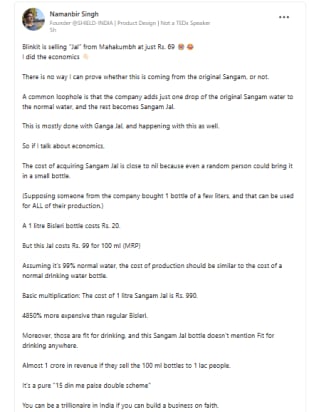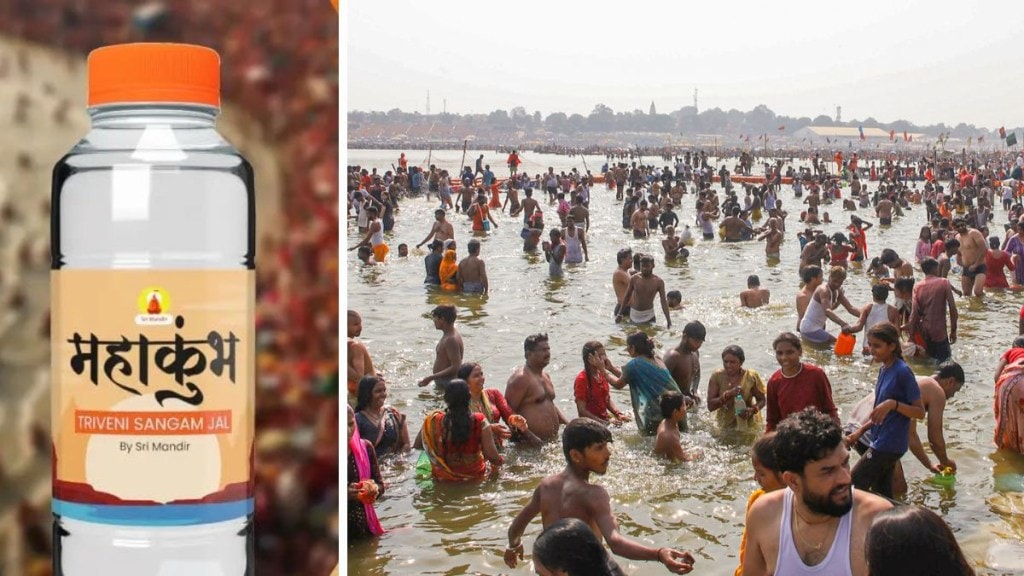In a viral LinkedIn post, Namanbir Singh, Founder of SHIELD-INDIA, sparked debate over the authenticity and pricing of sacred water being sold online from the Maha Kumbh Mela. Singh questioned Blinkit’s sale of “MahaKumbh Sangam Gangajal” at Rs. 69, highlighting potential loopholes and raising concerns about faith-based commercialization.
“Sangam Jal” or just clever marketing?
Singh’s post dissected the economics behind the product, suggesting that verifying the authenticity of the water is nearly impossible. “There is no way I can prove whether this is coming from the original Sangam, or not,” Singh wrote. He pointed out a common loophole in the industry—adding just a single drop of authentic Sangam water to regular water and branding the entire product as holy.

He noted that this tactic has been widely used with Ganga Jal and suspects the same with the Sangam Jal. “The cost of acquiring Sangam Jal is close to nil because even a random person could bring it in a small bottle,” Singh remarked. Assuming that one bottle of authentic water is diluted across the entire production, the profit margins become staggering.
Breaking down the costs, Singh highlighted the stark price difference: a 1-litre Bisleri bottle costs Rs. 20, while Blinkit’s Sangam Jal is priced at Rs. 99 for just 100 ml.
If sold to 1 lakh devotees, Singh estimates Blinkit could generate almost Rs. 1 crore in revenue. “It’s a pure ’15 din me paise double scheme’,” he quipped, suggesting that businesses exploiting faith could turn massive profits.
Faith or exploitation?
Despite the controversy, several e-commerce giants have jumped on the bandwagon:
- Blinkit is offering “MahaKumbh Sangam Gangajal” for Rs. 69 and has set up a 100 sq ft store at the Maha Kumbh Mela in Prayagraj, delivering essentials and holy water to devotees.
- BigBasket launched “Svasti Maha Kumbh Pavitra Triveni Sangam Jal,” promising water directly from the confluence of the Ganga, Yamuna, and Saraswati rivers.
- Amazon is selling “Mahakumbh – Triveni Jal (100 ml) + Mitti” from the holy site for Rs. 121.
Singh’s post has ignited a broader conversation about the commercialisation of faith. While companies argue they are making spiritual experiences more accessible, skeptics question the ethics behind profiting from religious sentiments.
“Blinkit, Zepto, BigBasket, and Amazon are delivering holy water to your doorstep, but at what cost?” Singh concluded. “You can be a trillionaire in India if you can build a business on faith.”
As the debate rages on, devotees and consumers are left to decide whether these services offer convenience or exploit faith for profit.

